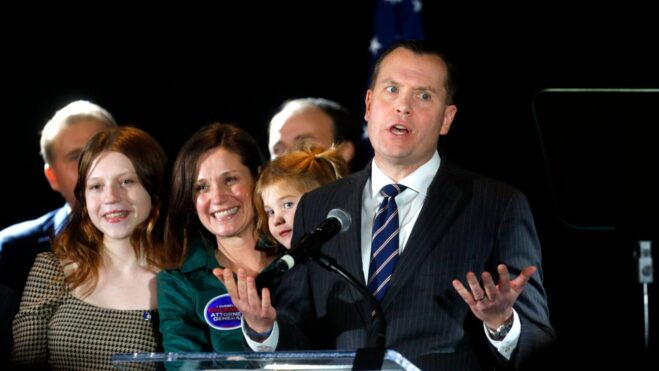Lawmakers Prepare To Unveil New Federal Sports Betting Legislation
The bill would provide federal rules and regulations for sports betting across the country
3 min

Sen. Richard Blumenthal of Connecticut and New York Rep. Paul Tonko have announced their intention to introduce a new federal bill for the sports betting industry, dubbed the Supporting Affordability and Fairness with Every Bet (SAFE) Act, which is expected to build upon Tonko’s earlier proposals.
The lawmakers are scheduled to hold a press conference on Thursday, Sept. 12, where they will unveil the details of the proposed legislation.
The forthcoming bill comes amid increased acceptance of betting and gambling, but also growing concern about social costs associated with the now-widely legalized activity. The bill is expected to address several key issues within the realm of online sports betting, including the implementation of advertising guidelines, affordability checks, and the use of artificial intelligence (AI) to track bettors’ habits. The legislation aims to establish a balance between the economic benefits of sports betting and the need to protect consumers from potential harm.
Rep. Tonko has been an active figure in the push for federal oversight of sports betting. Previously, he introduced legislation that sought to create federal laws for legal sports betting in lieu of control at the state level. The SAFE Bet Act is likely to include strict limitations on advertising, such as banning certain words from all forms of advertising and restricting the times when sports betting operators can run TV ads.
Additionally, the legislation is set to propose a limit on the number of deposits bettors can make per day. It could also prohibit certain types of wagers and lead to the development of a national self-exclusion database.
The press conference, set for 1 p.m. ET, will not only be a platform for the lawmakers to discuss the specifics of the bill but also an opportunity for stakeholders to voice their opinions. At least one representative from Northeastern University School of Law’s Public Health Advocacy Institute is expected to attend.
Growing pains
Since the legalization of sports betting in 38 states, there has been a surge in the number of Americans participating in online wagering. In 2022, Americans legally wagered $73 billion on sports, marking a 70% increase from 2021. Last year, that figure rose to $120 billion.
In the first six months of 2024, the recorded handle climbed to $73.6 billion, hinting at a possible new record for the year. This is in spite of reports that the illegal market continues to thrive.
The SAFE Bet Act may present some controversial ideas. States would have to apply for and receive approval from the federal government in order to offer sports betting. This move would mark a significant shift from the current state-led regulatory approach to a more centralized federal system.
This shift to federal oversight could lead to a more uniform set of rules and regulations. It could potentially simplifying compliance for betting operators who currently have to navigate a complex array of state laws.
However, the requirement to obtain federal permission to offer legal sports betting could mean a loss of autonomy. And this may lead to tensions between state and federal authorities over the control of gambling revenues and regulatory power. However, it could also lead to increased cooperation and information sharing between states and the federal government, potentially leading to more effective regulation.
Tightening the screws
One of the key aspects of the SAFE Bet Act is its focus on consumer protections. The proposed affordability checks and deposit limits aim to promote responsible gambling and prevent financial overextension among bettors.
The nationwide self-exclusion list would provide a tool for individuals to manage their betting activities and seek help if needed. These measures are designed to counter the possibility of an increase in gambling addiction.
The advertising restrictions outlined in the SAFE Bet Act could change the marketing landscape for sports betting companies. By limiting the use of certain words and the timing of advertisements, the legislation seeks to minimize the exposure of vulnerable populations, such as minors, to gambling and betting content.
The SAFE Bet Act’s emphasis on the use of AI could lead to advancements in technology that promote safer gambling practices. AI could be used to identify patterns of problematic gambling behavior and intervene before issues escalate.
Finally, the public health considerations of the SAFE Bet Act highlight the growing recognition of the social impact of gambling. By involving public health experts in the legislative process, the bill looks to balance the economic benefits of sports betting with the well-being of individuals and communities in an attempt to counter the ongoing resistance to betting expansion.
Whether or not the bill will have any legs in a divided Congress, during President Biden’s final months in office, remains to be seen.
Those wanting to follow the discussion on September 12 can do so via a livestream on Rep. Tonko’s X (formerly Twitter) page.





